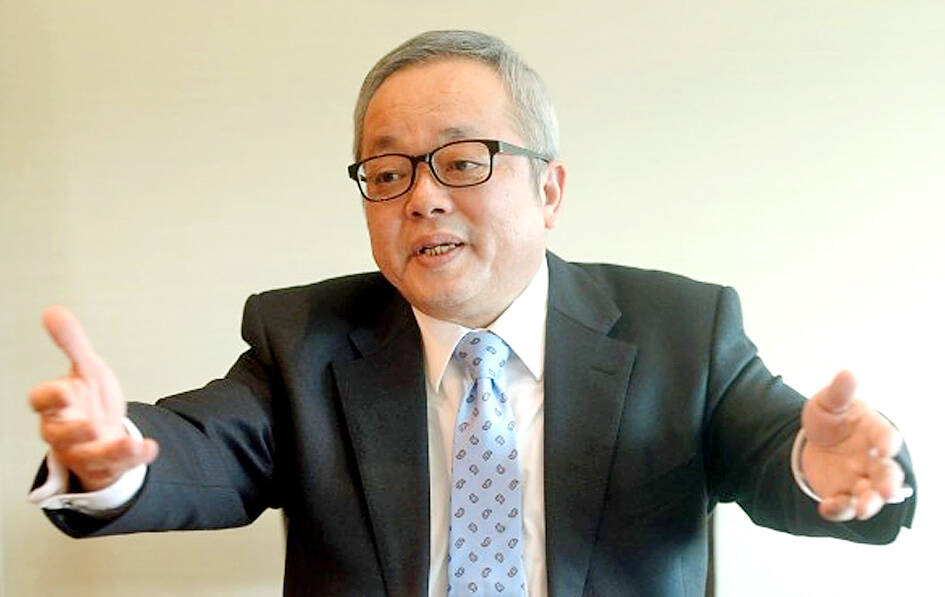State-run Taiwan Asset Management Corp (TAMC, 台灣金聯) yesterday said it would be more proactive in taking part in urban renewal projects and press ahead with reselling foreclosed properties at fair prices.
Shih Jun-ji (施俊吉), chairman of the nation’s largest bad-loan operator, said TAMC is seeking to deepen participation in urban renewal projects to boost projects on hand and generate profits on a yearly basis.
Urban renewal projects — intended to enhance building safety and stimulate domestic demand — are not subject to selective credit controls to curb property speculation.

Photo: Taipei Times file photo
Housing property price hikes have stabilized following a spate of selective credit controls and unfavorable tax terms, Shih said.
“Taiwan’s house price hikes are relatively moderate, compared with markets elsewhere,” Shih said on the sidelines of a public function, adding that the government has played an important role in stabilizing the market.
The Taipei-based company will continue to pursue reasonable profitability by selling properties it has acquired from the foreclosed market, Shih said.
Selling properties a fair rates has been an effective strategy for more than a decade and will remain a core business at TAMC, Shih said.
For this year, TAMC is to offer two batches of fair housing units, Shih said.
The first batch is to cover 80 apartment units priced from NT$8.9 million to NT$42 million (US$288,306 and US$1.36 million) in Taipei’s Xinsheng N Road and New Taipei City’s Linkou District (林口), he said.
TAMC will introduce the second batch and disclose more details after sales of the first batch are settled, Shih said.
The firm will follow its usual practice of offering about 100 houses in different parts of Taiwan at prices that are 10 percent lower than market rates, he said.
Shih said the US dollar appears to be the only financial asset that has gained value this year.
As long as this trend continues, foreign funds would not demonstrate much interest in local shares after cutting their holdings by more than NT$1 trillion so far this year, he said.
The US Federal Reserve has made clear its intention to fight inflation and raise policy rates sharply to achieve that aim, raising the chances of a hard landing in the US, which would be unfavorable for Taiwan’s exports, Shih said.
However, major local tech firms would emerge relatively unscathed given their global leadership and the world’s dependence on advanced technologies, he said.

CHIP RACE: Three years of overbroad export controls drove foreign competitors to pursue their own AI chips, and ‘cost US taxpayers billions of dollars,’ Nvidia said China has figured out the US strategy for allowing it to buy Nvidia Corp’s H200s and is rejecting the artificial intelligence (AI) chip in favor of domestically developed semiconductors, White House AI adviser David Sacks said, citing news reports. US President Donald Trump on Monday said that he would allow shipments of Nvidia’s H200 chips to China, part of an administration effort backed by Sacks to challenge Chinese tech champions such as Huawei Technologies Co (華為) by bringing US competition to their home market. On Friday, Sacks signaled that he was uncertain about whether that approach would work. “They’re rejecting our chips,” Sacks

Taiwan’s exports soared 56 percent year-on-year to an all-time high of US$64.05 billion last month, propelled by surging global demand for artificial intelligence (AI), high-performance computing and cloud service infrastructure, the Ministry of Finance said yesterday. Department of Statistics Director-General Beatrice Tsai (蔡美娜) called the figure an unexpected upside surprise, citing a wave of technology orders from overseas customers alongside the usual year-end shopping season for technology products. Growth is likely to remain strong this month, she said, projecting a 40 percent to 45 percent expansion on an annual basis. The outperformance could prompt the Directorate-General of Budget, Accounting and

NATIONAL SECURITY: Intel’s testing of ACM tools despite US government control ‘highlights egregious gaps in US technology protection policies,’ a former official said Chipmaker Intel Corp has tested chipmaking tools this year from a toolmaker with deep roots in China and two overseas units that were targeted by US sanctions, according to two sources with direct knowledge of the matter. Intel, which fended off calls for its CEO’s resignation from US President Donald Trump in August over his alleged ties to China, got the tools from ACM Research Inc, a Fremont, California-based producer of chipmaking equipment. Two of ACM’s units, based in Shanghai and South Korea, were among a number of firms barred last year from receiving US technology over claims they have

BARRIERS: Gudeng’s chairman said it was unlikely that the US could replicate Taiwan’s science parks in Arizona, given its strict immigration policies and cultural differences Gudeng Precision Industrial Co (家登), which supplies wafer pods to the world’s major semiconductor firms, yesterday said it is in no rush to set up production in the US due to high costs. The company supplies its customers through a warehouse in Arizona jointly operated by TSS Holdings Ltd (德鑫控股), a joint holding of Gudeng and 17 Taiwanese firms in the semiconductor supply chain, including specialty plastic compounds producer Nytex Composites Co (耐特) and automated material handling system supplier Symtek Automation Asia Co (迅得). While the company has long been exploring the feasibility of setting up production in the US to address